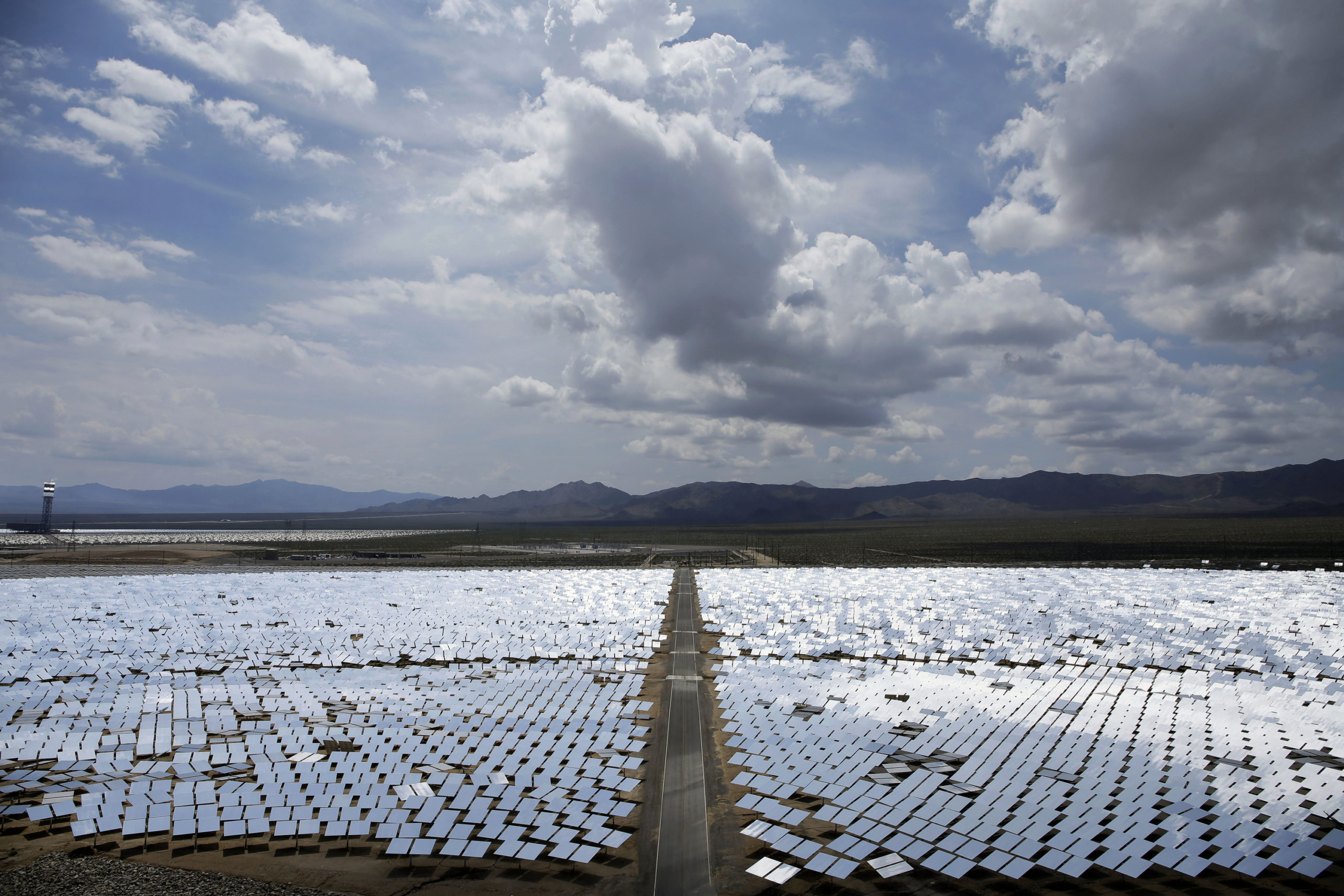
Keep up with energy-related developments in the Great Lakes area with Great Lakes Now’s biweekly headline roundup.
Click on the headline to read the full story:
Illinois:
- Two nuclear power plants in northern Illinois reversed plans to retire early – U.S. Energy Information Administration
Exelon, the owner-operator of Illinois’s six nuclear power plants, recently announced that the Byron and Dresden nuclear plants will continue operating rather than retire this fall as previously planned. The announcement came after the Illinois state legislature and governor approved a clean energy bill supporting carbon-free energy resources.
- Illinois’ new green energy law will increase your utility bill, but how much and why? – Belleville News-Democrat
Illinois lawmakers passed a green energy bill in September that will force fossil fuel plants to close by 2045 and put billions toward renewable energy and nuclear plants.
It includes incentives for buying electric vehicles and pays to retrain workers as the state phases out fossil fuel burning.
It’s also expected to cause an uptick in residents’ monthly utility bills.
Illinois began accepting applications for its LIHEAP program on Sept. 1, according to the Illinois Department of Commerce & Economic Opportunity, and it will continue to accept applications until May 31, 2022, or until funding is exhausted.
Michigan:
- DTE, Consumers Energy want customers to subscribe for green energy – The Detroit News
Michigan’s two largest utility companies are encouraging Michigan residents to pay a few dollars extra each month to get their power from renewable sources and accelerate the state’s adoption of renewable energy sources.
Together, CMS Energy Co.’s Consumers Energy and DTE Energy Co. are launching the MI Community Solar education campaign.
Minnesota:
- In Minnesota, old power plants could be the on-ramp for new wind and solar – Energy News Network
Several utilities are pursuing projects in which wind or solar generation will connect to the regional electric grid at retired or seldom-used fossil fuel power plants, allowing them to skip a bottlenecked interconnection queue.
- Xcel seeks 20% electric rate increase over three years – Minnesota Public Radio
Minnesota’s largest utility, Xcel Energy, is asking to raise its electricity rates by around 20 percent over the next three years.
Xcel says it needs the increase to cover the costs of replacing an aging electrical system as it transitions to more renewable energy. It comes at a time when many Minnesotans are struggling to pay their rising utility costs.
Ohio:
A settlement agreement filed Monday with the Public Utilities Commission of Ohio (PUCO) calls for FirstEnergy’s three Ohio utilities to refund customers $306 million.
The agreement would resolve 10 pending regulatory proceedings related to several annual earnings tests, a four-year review of the company’s electric security plan and its energy efficiency audits.
- House lawmakers review coal bailouts, energy efficiency proposal – Ohio Capital Journal
The Ohio House Public Utilities Committee on Wednesday reviewed two pieces of legislation aimed at different remnants of House Bill 6 from 2019.
One bill before the committee Wednesday would revive, in watered down form, a version of an energy efficiency program designed to reduce Ohio ratepayers’ electricity use by 0.5% annually. HB 6 eliminated a more ambitious program that aimed to reduce consumer electricity use by 2% annually.
The other would repeal hundreds of millions of dollars in ratepayer-funded subsidies of two unprofitable coal-fired power plants operated by the Ohio Valley Electric Corp., a cooperative owned by several large utilities.
Ontario:
- Ontario follows London Hydro’s lead, pushes Green Button provincewide – The London Free Press
Energy technology embraced early by London Hydro is now making its way across Ontario.
Energy Minister Todd Smith was at London Hydro Monday to announce Green Button technology, first embraced by London Hydro in 2015, will be required at energy agencies across the province.
Green Button allows users to download natural gas and electricity data from their utility to an app or computer, compare and monitor their use.
Pennsylvania:
Pennsylvania’s state Senate on Wednesday approved legislation that would bar municipalities in the nation’s No. 2 natural gas state from adopting building codes that prohibit gas hookups or otherwise restricting utility service based on the energy source.
The Republican-penned bill passed, 35-15, and heads to the state House of Representatives for consideration there. The chamber approved it without debate, with six Democrats joining all 29 Republicans in favor of it.
Wisconsin:
- Wisconsin bill would clarify third-party solar’s legal status, once and for all – Energy News Network
Wisconsin is the only state where no type of third-party solar ownership has been possible, advocates say. The legal uncertainty is preventing homeowners, businesses, and nonprofits from using the popular financing model.
- Parent company of Milwaukee, Green Bay utilities says it plans to eliminate coal as a fuel by 2035 – Milwaukee Journal Sentinel
WEC Energy Group said Tuesday that it has set a goal of eliminating coal as a fuel source for its power plants by 2035.
WEC Energy, based in Milwaukee, is the parent company of utility We Energies, also based in Milwaukee, and Wisconsin Public Service based in Green Bay.
It also owns utilities in Illinois, Minnesota and Michigan.
Tuesday’s announcement came as the company released its third quarter earnings, and it is the latest move as WEC continues pivot away from coal as an energy source.
Catch more news on Great Lakes Now:
Illinois Senate passes energy deal governor says falls short
Featured image: This Aug. 13, 2014, file photo, shows an array of mirrors at the Ivanpah Solar Electric Generating site in Primm, Nev. (AP Photo/John Locher, File)




